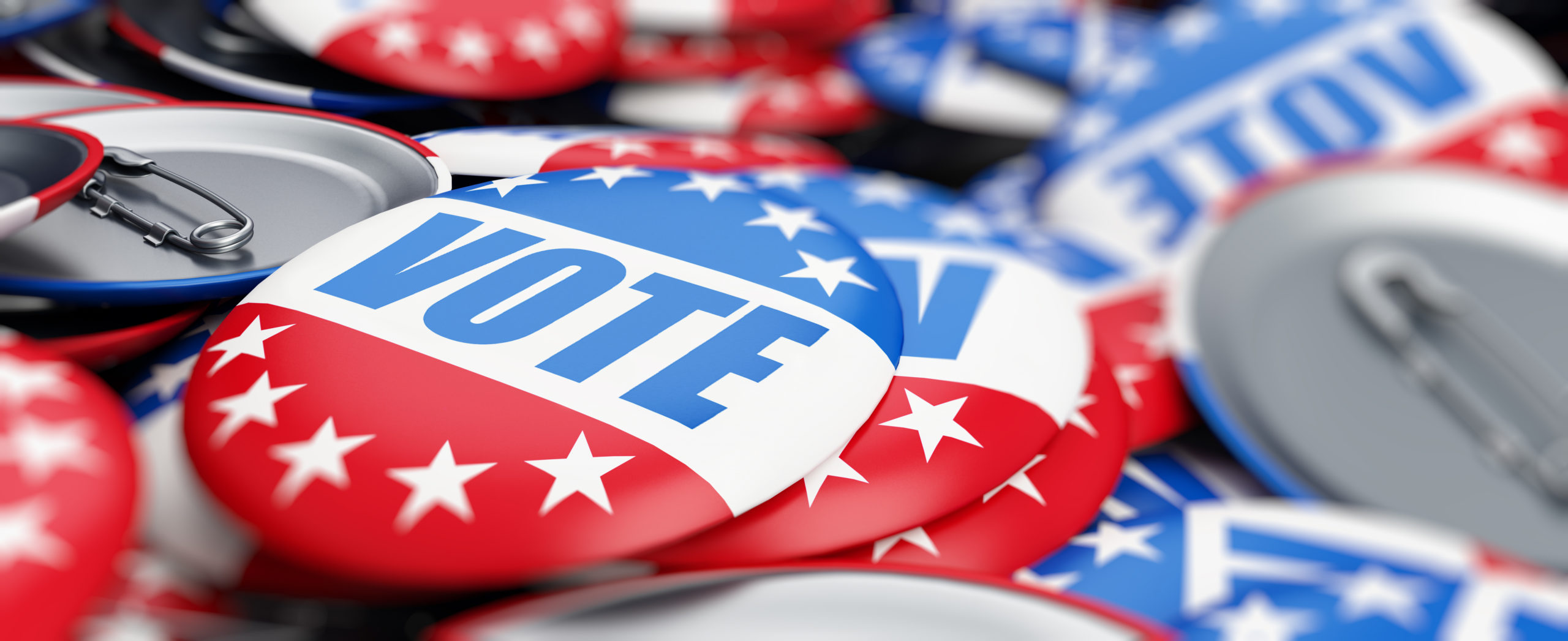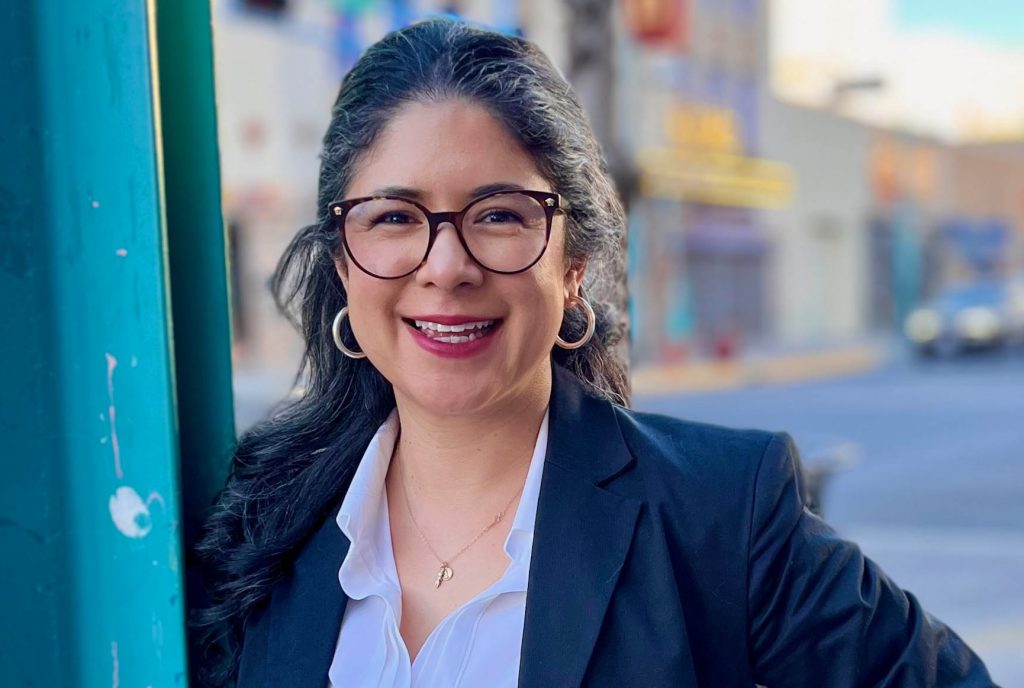Voters who have not already voted will go to the polls today to cast their ballots.
New Mexicans cast 456,224 early in-person votes and a record-breaking number of votes by absentee ballots.
Turnout looks likely to pass the total from 2008, the state’s current record-high number of votes in any election, with today’s turnout.
And today, thousands will flock to the polls statewide, which are open from 7 a.m to 7 p.m.
Last week, the Secretary of State said she hoped that most votes would be counted by election night but the tabulation of absentee ballots would likely take several days.
Unlike some other states, all absentee ballots must arrive by the close of polls to be valid.
County clerks across the state beefed up their absentee precinct boards in an attempt to avoid problems found during the primary.
Santa Fe and Taos counties needed permission from district courts to extend the time needed to finish processing and counting absentee ballots. During a special session this past summer, the Legislatures passed a bill that made changes to this year’s election, including changes to timelines on absentee ballots. Counties that have sent over 10,000 absentee ballots —six counties this year— were allowed to begin processing absentee ballots two weeks before Election Day. Other counties were allowed to begin processing absentee ballots five days before Election Day.
Absentee ballots take longer to process than other ballots, because of the need for verification and making sure the voters did not already cast a vote in-person.
Because of the delay in counting all absentee ballots—as of Monday morning there were still over 71,000 unreturned absentee ballots—media likely will not be able to call any close races tonight.
The media calls on who won are projections based on unofficial results. Results will become official, as has been the case in every election in the state, later this month when counties canvas the results and the state canvas takes place.
Federal races
The top of the ticket is, of course, the presidential race. Seven candidates appear on New Mexico’s ballot, but the two who will receive nearly all votes between them are incumbent Republican Donald Trump and Democratic former Vice President Joe Biden.
An Albuquerque Journal poll released this week showed Biden with a healthy lead.
The other big statewide race on the ballot is the U.S. Senate race to replace retiring U.S. Sen. Tom Udall, who opted not to seek a third term. Democrat Ben Ray Luján, a U.S. Representative, will face Republican Mark Ronchetti, a former TV meteorologist. The Journal poll showed Luján led Ronchetti by eight points.
Perhaps the marquee matchup anywhere on the ballot is the 2nd Congressional District race between incumbent Democrat Xochitl Torres Small and Republican former state Rep. Yvette Herrell. The two faced off in 2018, with Torres Small winning by fewer than 4,000 votes.
Now, the race is considered one of the best pickup opportunities for Republicans, in a district Trump won by 10.2 percentage points (and won by smaller margins by Republicans Mitt Romney and John McCain in 2012 and 2008, respectively).
The Journal poll showed Herrell leading by two points.
The winner of this race likely won’t be known on Tuesday night, or potentially for several nights.
The other two congressional races will likely be blowouts for Democrats.
In the Albuquerque-centric 1st Congressional District, Democrat Deb Haaland faces Republican Michelle Garcia Holmes. Haaland easily won election to the seat in 2018, while Garcia Holmes ran on the Republican Party’s gubernatorial ticket as Steve Pearce’s running mate and lost to Michelle Lujan Grisham and Howie Morales.
The seat has been held by a Democrat since Heather Wilson left the seat to run for U.S. Senate in 2008, and Martin Heinrich won the open seat; the district had never been held by a Democrat up to this point.
In the 3rd Congressional District, which spans across northern New Mexico, Luján left the seat to run for Senate. Democrat Teresa Leger Fernandez won a seven-way primary, while Alexis Johnson won a Republican primary with three names on the ballot.
The seat has been held by Democrats for nearly its entire history; Republicans only briefly held the seat after a special election win by Bill Redmond in 1997.
State races
New Mexicans have a chance to decide on two state Supreme Court seats.
Gov. Michelle Lujan Grisham appointed Justices Shannon Bacon and David Thomson to the state’s high court near the beginning of her term in 2019, to replace retiring Justices Charles Daniels and Petra Maes. Both are Democrats.
Bacon will face Republican 11th Judicial District deputy district attorney Ned Fuller in the general election.
Thomson, meanwhile, will face Republican former prosecutor Kerry Morris.
Voters statewide will also get to decide on three judges to the state Court of Appeals.
Every seat in the state legislature is up for grabs this year—all 70 in the state House and 42 in the state Senate.
Democrats hold large majorities in each chamber after gaining seats in the 2018 election. Currently, Democrats have 46 seats in the House to 26 for Republicans and 26 Democrats in the Senate to 16 Republicans.
In the state Senate, several progressive Democrats defeated conservative Democrats in the June primary. Republicans hope to turn some of these seats red—but Democrats also have pickup opportunities in some Albuquerque-area seats.
In the state House, Democrats will largely play defense, as they won five seats in 2016, then eight more seats in 2018.
Constitutional Amendments
Voters in New Mexico will decide on two constitutional amendments, which require a majority vote to go into effect.
The first seeks to change the state Public Regulation Commission from an elected five-member commission to a board with three members appointed by the governor. The powerful regulatory body has seen many changes over the last decade, but this would be the most sweeping change.
The second constitutional amendment would allow the state legislature to pass laws that would adjust the election dates for some state or county offices and extend terms in some limited cases. It came after the state Supreme Court ruled that a 2019 law by the House to adjust the date of some elections was unconstitutional. It would impact many judicial positions and county officers.


















